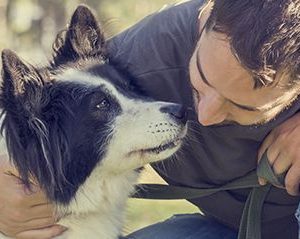- The Best Time of Day to Drink Bone Broth to Maximize Health Benefits
- 8 Ways to Increase Dopamine Naturally
- 7 Best Breads for Maintaining Stable Blood Sugar
- Gelatin vs. Collagen: Which is Best for Skin, Nails, and Joints?
- The Long-Term Effects of Daily Turmeric Supplements on Liver Health
- Could Your Grocery Store Meat Be Causing Recurring UTIs?
- Are You Making This Expensive Thermostat Error This Winter?
- Recognizing the Signs of Hypothyroidism
- 10 Strategies to Overcome Insomnia
- Could Artificial Sweeteners Be Aging the Brain Faster?
You’re Not Imagining It: Dogs Do Get Jealous

Most dog owners have seen this dynamic in action, but a new study confirms that your canine companion can become jealous when you pay attention to another dog.
Researchers put 18 dogs in situations where they could imagine their owner interacting with either a realistic-looking fake dog or a fleece cylinder. The fake dog served as a potential rival for attention while the cylinder served as a control.
First, the dogs saw the fake dog next to their owner. A barrier was then put up so the dogs couldn’t see the fake dog. Even though they couldn’t see the bogus pooch, the dogs pulled hard on the lead to try to get to their owners when it seemed they were stroking the fake dog behind the barrier.
When the fleece cylinder was used instead of the fake dog, the dogs pulled less urgently on the lead, according to the study published online April 7 in the journal Psychological Science.
The researchers said that dogs showed three human-like signs of jealousy: They became jealous only when their owner interacted with a perceived social rival and not an inanimate object; jealousy occurred as a result of that interaction and not due to a potential rival’s mere presence; and dogs became jealous even for an out-of-sight interaction between their owner and a social rival.
“These results support claims that dogs display jealous behavior. They also provide the first evidence that dogs can mentally represent jealousy-inducing social interactions,” said lead study author Amalia Bastos, from the University of Auckland, in New Zealand.
“Previous studies confounded jealous behavior with play, interest or aggression, because they never tested the dogs’ reactions to the owner and the social rival being present in the same room but not interacting,” Bastos noted in a journal news release.
“There is still plenty of work to do to establish the extent of the similarities between the minds of humans and other animals, especially in terms of understanding the nature of nonhuman animals’ emotional experiences,” Bastos said. “It is too early to say whether dogs experience jealousy as we do, but it is now clear that they react to jealousy-inducing situations, even if these occur out-of-sight.”
More information
The ASPCA has more on dog behavior.
SOURCE: Psychological Science, news release, April 8, 2021
Source: HealthDay
Copyright © 2026 HealthDay. All rights reserved.










